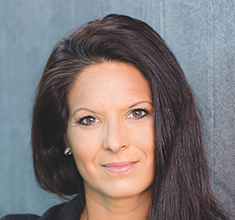Community Management Before Section 230, When You Had to Print Out Every Post
Section 230 of the Communications Decency Act has been a frequent topic of conversation on Community Signal. Its existence as we know it seems untenable given Trump’s recent executive order and Joe Biden’s criticisms of it. On this episode, community and social media professional David Flores shares some of the history of how Section 230 came to be.
has been a frequent topic of conversation on Community Signal. Its existence as we know it seems untenable given Trump’s recent executive order and Joe Biden’s criticisms of it. On this episode, community and social media professional David Flores shares some of the history of how Section 230 came to be.
David worked at Prodigy just as they were coming under fire for a post that someone left on one of their message boards. While the initial court ruling went against Prodigy and found that online service providers could be held liable for the speech of their users, this decision served as the genesis for Section 230, and the ruling was overturned by the new law.
He also shares how he entered the field of community management and describes navigating moderation at Prodigy in the ’80s and ’90s. For context, all deleted posts were printed so as to maintain a record. He also discusses conversations with early community platforms and how Prodigy attempted to look after its employees’ emotional wellbeing during times of turmoil at work.
Here’s more of what Patrick and David discuss:
- What was it like moderating before Section 230?
- Editorial standards as a framework for community moderation practices
- The popularity of Prodigy’s message boards
 For years, Facebook executives have persistently shut down efforts to make the site less divisive,
For years, Facebook executives have persistently shut down efforts to make the site less divisive, 
 People have gotten crafty when it comes to staying connected during this time of social distancing. Zoom calls with family and friends,
People have gotten crafty when it comes to staying connected during this time of social distancing. Zoom calls with family and friends,  We’re several months into the COVID-19 pandemic and the daily loss of lives is still devastating and the longterm effects on our communities and society as a whole have yet to be seen. For many of us, the pandemic has affected our routines, our families, our work, and our livelihood. While some online communities have seen more engagement from community members (I love
We’re several months into the COVID-19 pandemic and the daily loss of lives is still devastating and the longterm effects on our communities and society as a whole have yet to be seen. For many of us, the pandemic has affected our routines, our families, our work, and our livelihood. While some online communities have seen more engagement from community members (I love  Nicholas Tolstoshev
Nicholas Tolstoshev Every community has its own shared language and for the Spiceworks community, that shared language revolves around IT. Made up of IT professionals and service providers that support them,
Every community has its own shared language and for the Spiceworks community, that shared language revolves around IT. Made up of IT professionals and service providers that support them, 

 We started recording this episode about a week before its release, and since then, coronavirus COVID-19 has continued to spread across the globe. News and governmental guidance is being updated frequently and people in many regions are being mandated to stay home as much as possible in an effort to help
We started recording this episode about a week before its release, and since then, coronavirus COVID-19 has continued to spread across the globe. News and governmental guidance is being updated frequently and people in many regions are being mandated to stay home as much as possible in an effort to help  As community professionals, the array of platforms, reading material, conferences, and thought leaders available to us only continues to grow. And if you’ve read or written a job description for a community opportunity recently, you know that there’s often an expectation around technical literacy for everyone in the field.
As community professionals, the array of platforms, reading material, conferences, and thought leaders available to us only continues to grow. And if you’ve read or written a job description for a community opportunity recently, you know that there’s often an expectation around technical literacy for everyone in the field. Every company has the challenge of managing how to respond to customer feedback. But what if you’re managing a crowdsourcing community and actively asking people for their ideas and feedback? How do you make sure that every contributor feels seen and respected for their efforts, whether their idea becomes reality or not? These are the questions that
Every company has the challenge of managing how to respond to customer feedback. But what if you’re managing a crowdsourcing community and actively asking people for their ideas and feedback? How do you make sure that every contributor feels seen and respected for their efforts, whether their idea becomes reality or not? These are the questions that